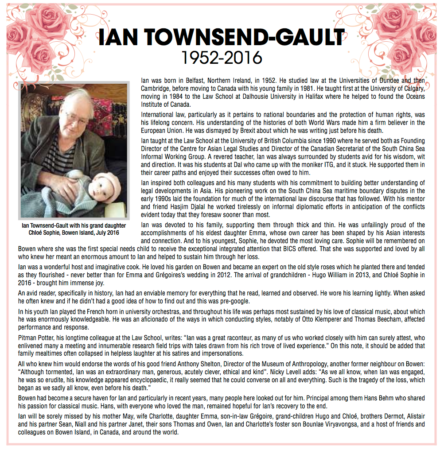This is my sixth year as a teaching assistant at U of T. While a big part of my TA duties has always been grading, for almost all the courses I have helped teach I have lead tutorials.
Early on, I tried to emulate a system that was common in my small group classes in Oxford (“tutorials” there means one-on-one discussions with your supervisor). The instructors would ask everybody to write a concise summary of each assigned reading and would then call on a student at random for each reading to present their work. The idea is to create a stronger incentive to be prepared for tutorials, and also to give all students an equal chance of contributing. The second part is important because tutorials can easily be dominated by the students with the most privilege, in the sense that they feel entitled to speak and for others to listen to them.
At some point, I conducted a survey and wrote a report on this approach. The big downside was that people were worried about being called on to present, so they did not attend. Attendance in U of T political science tutorials is poor to begin with, so I concluded that this was probably asking too much.
Much later, for a course at UTM, it was necessary to assess participation in tutorials with impractically large numbers of students. On the advice of a fellow TA, I devoted 10 minutes of each 50 minute tutorial to students writing a paragraph or two based on a writing prompt I provided, then rapidly graded participation based on them showing me what they wrote at the end of class (basically on the spectrum of ‘wrote nothing at all’, ‘wrote two lines of nonsense’, ‘pass’).
This year, I am TAing two courses to try to cover the cost of another unfunded summer. In one students are meant to give one presentation. In the other, tutorial grades are all up to me.
My aims when leading a tutorial are principally to encourage a respectful and educational discussion among the students. This is often hampered because nobody is prepared for the tutorial, so all my leading questions about the readings, tutorial topic, and discussion questions yield little response. It is also often hampered for a different reason: because some students dominate discussion – interrupting others, feeling entitled to respond immediately to evert comment made by others, and generally inhibiting the respectful atmosphere which is a precondition for participation among the less privileged and confident. This is especially true in the huge tutorials which are standard in political science at U of T.
So, I am considering alternative means of moderating the discussion. My intuitive approach is to begin by calling on those who first raise their hands, to always call on those who have not spoken yet before calling again on someone who has, to call on people who spoke before earliest before letting people speak a second time, and to gently correct students who speak without recognition from the chair (me) or whose comments are otherwise problematic.
In my six tutorials next week I am planning to explain some of these issues of equity and the mechanics of maintaining a speakers’ list. I will summarize my intuitive approach and suggest some alternatives. One of those would be asking for a student to volunteer in each tutorial to manage the speakers’ list: taking note of people who raise their hands and using some combination of agreed rules and their judgment to choose who gets to speak next.
One idea from U of T seminars generally attended by graduate students and faculty which might be worth incorporating is the “two finger” gesture. As opposed to raising one’s hand, one raises two fingers to say that one has an immediate response to what was just said. This can be important because back-and-forth between people with theories and those who question them (or between people with different points of view) can enrich discussion.
I will also bring up the basic version of the Progressive Clock, which tracks speaking time for female, male, white, and coloured people and can generate graphs and exportable data. If people think it would be valuable to track speaking time in that way, I would ask for a second volunteer to do so and send the data to me.
I take my work as a teaching assistant seriously. That’s central to grading, obviously, but the pedagogy of teaching matters too. I welcome comments on any part of this (and I will try to find that report on random presentations).


